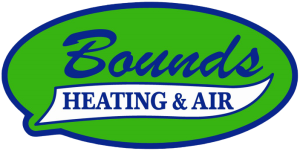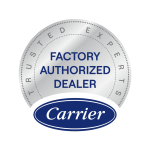Should I Upgrade to a Two-Stage or Modulating Furnace?
Trying to find the furnace that is best for your home can be a complicated process. That’s why we compiled this list of pros and cons to ensure you get the heater that’s right for you!
MODULATING FURNACE
Modulating furnaces are perfect for homeowners who tend to be picky about their heat settings. These systems are designed to adjust their flame in small increments to give you tons of options regarding how much you want to heat your home.
Pros
Greater energy efficiency- Modulating furnaces are the most energy-efficient heaters on the market. Because this system can adjust its flame in slight increments, it can reach an incredible AFUE rating of up to 98%, which means that for every dollar worth of fuel consumed, 98 cents goes toward heating your home. With a rating like that, you should start to see a noticeable drop in the cost of your energy bills right away.
Increased control- No other furnace type has nearly the same amount of temperature control as the modulating furnace. These units allow you to keep your home within one to two degrees of the temperature of your choice. Modulating systems have adjustable heat settings and often come equipped with a variable-speed blower, which will significantly reduce hot and cold spots in your home.
Cons
Costly- These furnaces are the most expensive on the market. While they’re the best at what they do, not everyone can throw as much as $10,000 toward a furnace installation.
Is it Right for Me?
The modulating furnace is an excellent investment for those who aren’t looking to move anytime soon. The energy savings from this system often pay for themselves in anywhere from 3.5 to 5 years, after which you should have at least 15 more years of ongoing heating savings.
TWO-STAGE FURNACE
As the name suggests, a two-stage furnace’s burner runs at two different levels. For example, these burners can run on high heat during the winter and low heat for more moderate days.
Pros
Cheaper option – The two-stage furnace’s most significant advantage over the modulating furnace is its cost. On average, a two-stage will cost around a couple thousand less with insulation than a modulating unit.
Cons
Less Control- Two-stage furnaces do not have as much control of the temperature as modulating furnaces. While this heater will still eliminate hot and cold spots as well as temperature swings, it doesn’t provide nearly the same amount of control over the temperature as a modulating heater.
Decreased Efficiency- While a two-stage heater is more efficient than other models, it simply can’t compare to the modulating furnace as the increased control of the burners allows you to operate at lower capacities instead of having to choose between hot and cold.
Is it Right for Me?
If you’re not 100% you have found your forever home, the two-stage furnace is a better option. This system combines the best of both worlds by providing you with cheaper up-front costs while still increasing the value of your home and heating your house well.
Ready to upgrade your furnace? Bounds Heating & Air has experienced technicians who can handle whatever heater you decide is right for your home. Contact us online or give us a call at (352) 472-2761 to get your installation scheduled today!



